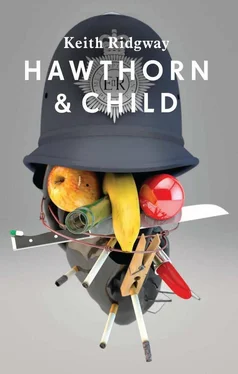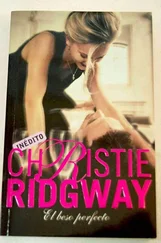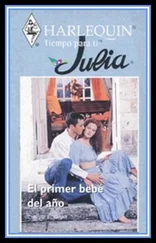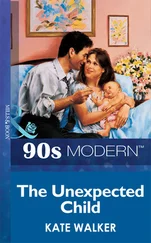He got out of the bed and put on his shoes and his jacket and turned on the light and wrote down some of the book titles. There was a lot of history. He looked in the tin box, the container that had glinted in the dark. He struggled with the lid. It was empty.
— I’m not interested in anything other than the shooting. I’m not investigating Daniel.
— It sounds like you are.
— Really, I’m not.
— Walter, just tell him.
— It has nothing to do with anything.
— It probably doesn’t. But I’m sure you’d want to be certain. For peace of mind. I’m not interested in some minor pot buying, believe me. Or selling.
— I know …
Hawthorn stepped into the kitchen.
— Who are you?
Walter Andone was small, muscular, clean-shaven, dark-haired. His accent was very lightly East European, or possibly Italian.
— I’m Detective Hawthorn.
— May I see some ID please?
— Oh, Walter, for Christ’s sake.
— Of course.
Hawthorn rummaged for it, smiling. Alison Gayle looked apologetically at him.
— Did you find your way around all right? she asked.
— Thanks, yes.
— You were upstairs?
Hawthorn glanced at Child and Alison Gayle. He found his warrant card and held it out.
— Yes. You must be Mr Andone.
He snatched the card from Hawthorn’s hand.
— Where were you? Doing what?
Hawthorn smiled at him.
— I was having a look in Daniel’s room.
Andone stared at him. Not at the card. He hadn’t even looked at the card.
— Just now?
— Yes. I was in the living room as well. That’s all. Who’s the movie buff?
Andone continued to stare.
— You have a search warrant?
— No.
— I thought you needed a warrant to search anywhere.
— It’s not a search, said Child. But in any case, when someone is the victim of a crime, the law allows us to assume consent in relation to their premises.
Child spoke genially. Andone nodded, his eyes on Hawthorn. He looked at the card and handed it back.
— What are you looking for?
— We’re just trying to get an idea of who might have wanted to shoot Daniel.
It was Child who was talking, but Andone looked at Hawthorn.
— In his room?
— We don’t have the benefit of knowing him. How long have you known him?
— A year. A little more.
Hawthorn said nothing.
— I am not telling you anything about any drugs. I am saying nothing about it whatsoever.
Child sighed.
— Well tell me this at least. Do you know any dealers who are local?
Andone turned his attention to Child.
— No. I can say that. No.
— Do you know any from Tottenham?
He considered this. Hawthorn stood by the wall.
— No. Not at all.
— Do you know, Hawthorn said, anyone who owns a vintage car?
Andone glared at him again.
— A vintage car? No.
— Tottenham, said Child. Do you have any connection with Tottenham? With anyone in Tottenham who is involved in selling drugs?
— From a vintage car?
— Forget the vintage car.
— No. I do not know anyone from Tottenham.
They all looked at each other. Hawthorn took out his notebook. The others watched him do that, as if they expected something to come of it.
Child coughed.
— OK, he said. OK. If you do think of any connection to Tottenham, please let us know. It could be very important.
As they walked back to the car Hawthorn looked through his notebook while Child talked. While Child complained. Hunched … tin box … NASA . He complained about Andone and Alison Gayle. Marine … pools of light /pools of shadow … ribbing . He complained about Hawthorn. London, A Biography … Jewish London … The Man Who Knew Too Much. He complained about the car.
Hawthorn read his notebook while he pretended to listen to Child. Or, he listened to Child while he pretended to read his notebook. He didn’t know which it was.
Daniel Field was alive and would recover. He was heavily sedated and sleeping. A family liaison officer met them outside an intensive care waiting room. Through the small window in the door they could see Mrs Field pacing up and down, talking on the telephone while her daughter sat in a corner, her attention fixed on the mobile phone in her hand. They waited.
— Did he regain consciousness at all? Hawthorn asked.
— Briefly, yes, in recovery.
— And?
— And what?
— What did he say?
— Nothing. After four hours of surgery? Nothing at all.
— Who’s she talking to?
— Her ex-husband. Any arrests yet?
— Last seen heading north, said Child. They think they’re in Manchester. There’s pictures of them all the way up the M6.
— In the Hyundai?
— In the Hyundai. Not the brightest, these boys.
— And crack high.
— This is the third of these in the last year.
— Third?
— One down in Peckham last summer. And the guy in Vauxhall.
— Vauxhall was a hit.
— Was it?
Hawthorn watched Mrs Field. She was about five foot eight tall in her heels, late forties, attractive, her grey hair cut short. She was dressed in a black business suit. She glanced up and caught his eye. He looked away.
She kept them waiting some time. When she came to the door she looked them over. She said nothing, and allowed Hawthorn then Child to introduce themselves. They went into the room. She introduced her daughter. Her face was marked by tears and she seemed very young. Mrs Field asked where Rivers was. Child told her about the boys from Totten-ham and the trail that was being followed northwards. She nodded, rubbed at her eyes.
— Random is never really random, she said quietly.
— What do you mean? Hawthorn asked.
She looked up at him, a little surprised, and then she almost smiled.
— I don’t mean that it wasn’t random. I just mean that it doesn’t feel random when it happens to your son. It feels very specific then. Very specific.
— When we spoke to Daniel this morning … Hawthorn began.
— You spoke to him?
— Yes. We got here just as he did. We were able to speak to him very briefly in the emergency room.
— Oh. I didn’t know. How was … I mean … was he in pain?
Hawthorn lifted his shoulders a little.
— Well yes, he was in pain. Of course he was in pain.
— They were preparing him for surgery, said Child. He was given painkillers very quickly. They were looking after him very well.
— I know. Of course. It’s just difficult for me to think about. Was he very frightened?
— He was actually quite alert, said Hawthorn. He seemed strong. It was a good sign. They said it was a good sign.
She pushed a smile towards her daughter. Nodded.
— When we spoke to him, Hawthorn went on, we asked him what had happened. He told us that a car had pulled up alongside him and shots had been fired. But he told us that it was an old car. An old-fashioned car. And when we asked did he mean a vintage car he said yes. A vintage car.
She frowned.
— But these boys … were they in a vintage car?
— No.
— The simple explanation, said Child, is that Daniel, in shock, perhaps coming under the influence of the first of the painkillers and what have you, imagined that he had seen a vintage car.
— Yes, she said quietly.
— But it’s a loose end, said Child. And my colleague is keen to tie it up.
— Do you know anyone with a vintage car? Have you heard Daniel mention knowing anyone with a vintage car?
She was quiet. She didn’t move. Then she shook her head slowly.
— Does a vintage car mean anything to you at all?
— No. Not really.
Читать дальше












